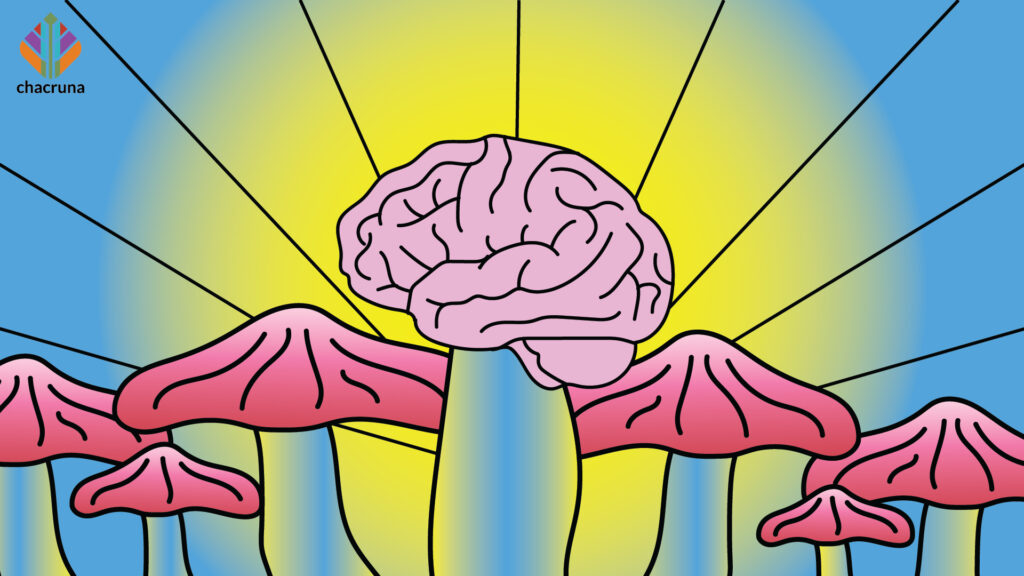During the 2020 presidential election, over 55 percent of Oregon voters approved Measure 109, also called the Oregon Psilocybin Services Act. With this historic vote, Oregon became the first state to legalize the production, sale, and administration of psilocybin, a psychedelic substance produced by over 200 species of fungi.
Passing Measure 109 triggered a two-year development period that started last January. In March, Governor Kate Brown appointed members to the Oregon Psilocybin Advisory Board, which is recommending rules for the statewide psilocybin industry. Based on the Board’s recommendations, the Oregon Health Authority (OHA), the state public health agency, will publish final rules next year. In early 2023, the OHA will accept licensing applications from businesses and individuals hoping to work in the psilocybin industry.
Despite having been passed over a year ago, Measure 109 still generates considerable confusion among experts and the public. Journalists often report that Oregon legalized psilocybin-assisted therapy or the sale of magic mushrooms for medical use. But that isn’t the case. Measure 109’s approach is best described as supported adult use.
Join us for our next conference!
In Oregon, adults aged 21 and older will soon be permitted to consume psilocybin, for any reason, with support from trained professionals called psilocybin facilitators.
Supported adult use differs from medical use. In Oregon, adults aged 21 and older will soon be permitted to consume psilocybin, for any reason, with support from trained professionals called psilocybin facilitators. Though facilitators will be licensed to administer psilocybin and provide support to clients, they will not be acting as healthcare providers, and supported adult use does not constitute medical care. To emphasize these distinctions, Measure 109 calls people who receive psilocybin clients instead of patients. The services they receive are defined as psilocybin services instead of therapy, and the professionals who provide them are called facilitators instead of therapists.
Measure 109’s supported adult use model is one of several types of drug policy reform making their way across the country. Other examples include retail cannabis sales, where people can purchase cannabis products in stores and take them home, and psychedelics decriminalization, which reduces criminal penalties associated with psychedelics but does not regulate production or sales.
Though retail cannabis sales are available in many states, the retail sale of psychedelics does not currently exist in the United States, nor has it been proposed. In contrast, in the Netherlands, retail stores called smart shops sell psilocybin-containing fungi, called sclerotia or magic truffles, and plants containing other psychedelic substances. By comparison, in the United States, decriminalization has been the most popular approach to psychedelics regulation.
At least 12 U.S. cities have decriminalized psilocybin and other psychedelics, making psychedelics-related offenses their lowest law enforcement priority (Denver became the first in 2019, when it decriminalized psilocybin). These cities will spend no resources on enforcing the federal Controlled Substances Act, or state versions of the law, which criminalizes psilocybin as a schedule 1 controlled substance.
Unlike the hands-off approach of decriminalization, where local police and prosecutors essentially ignore state and federal drug laws, retail sales and supported adult use require more active involvement from state government. They create state-regulated systems for producing safe and reliable products, including the licensing and oversight of manufacturing facilities and testing labs. But the similarities between retail sales and supported adult use end there.
Rather than operating storefronts and allowing products to be sold and consumed offsite, service centers will maintain controlled and private settings in which facilitators will administer psilocybin to clients.
Oregon’s supported adult use framework differs from a retail model by creating licensed service centers instead of retail dispensaries. Rather than operating storefronts and allowing products to be sold and consumed offsite, service centers will maintain controlled and private settings in which facilitators will administer psilocybin to clients. The facilitators will be trained to ensure that clients have safe and comfortable experiences.

Discover the Indigenous Reciprocity Initiative of the Americas
To become facilitators, candidates must complete a training program approved by the state, pass a professional licensing exam, apply to the Oregon Health Authority, and maintain an active license. Other than that, aspiring facilitators need only have a high school education or its equivalent, such as a General Education Development (GED) test.
Some skeptics are concerned by these requirements. They worry that, without a higher education or training and experience in an existing health profession, facilitators will be unprepared for the complex emotions that psilocybin can produce in clients. But critics should not be alarmed.
In Oregon, psilocybin will not be dispensed for treating health conditions, and clients need not be referred by healthcare providers or receive a medical diagnosis to participate. Moreover, while psychedelic-assisted therapy can involve active participation by therapists that resembles psychoanalysis or cognitive therapy, facilitators in Oregon must take a non-directive approach. They will not guide, interpret, or explain the client’s experience as it unfolds. Instead, they will only intervene if a client’s comfort or safety are at risk. But this does not mean that psilocybin services offered in Oregon won’t have wellness benefits.
Though clients must understand that they should not use psilocybin services as a substitute for medical care, research shows that psilocybin can produce rapid and sustained psychological benefits.
Though clients must understand that they should not use psilocybin services as a substitute for medical care, research shows that psilocybin can produce rapid and sustained psychological benefits. Like many practices that fall outside traditional healthcare—such as massage, yoga, and meditation—psilocybin services could be used as an adjunct to medical treatment and a healthy lifestyle to promote physical and mental wellness. Clients may also utilize psilocybin for personal, creative, or spiritual growth, and one benefit of supported adult use is its flexibility. A variety of individuals can train to become psilocybin facilitators, including life coaches, artists, and clergy members.
The risks are likely minimal. Psilocybin has a low risk of toxicity and very low potential for creating dependence or addiction. In the Netherlands, the Dutch Ministry of Health commissioned a scientific study to evaluate the risk of retail psilocybin sales, and it concluded that they posed little risk to individuals or public health. Similarly, two years after psilocybin was decriminalized in Denver, the city’s Psilocybin Mushroom Policy Review Panel reported that decriminalization “has not presented any measurable public health or community safety risks.” Furthermore, though supported adult use differs from medical research, in clinical trials, adverse events associated with psilocybin are usually temporary and mild, with mild and transient nausea and headache being among the most common.
Oregon’s supported adult use model is likely safer than frameworks that allow for retail sales of cannabis or psychedelics, which provide no support other than consumer education at the point of sale. Though it is unlikely to be needed, facilitators will receive training in cardiopulmonary resuscitation (CPR). They will also have support staff at service centers and access to other safety resources. For example, the Licensing Subcommittee of the Oregon Psilocybin Advisory Board has suggested that, in addition to facilitators at each service center, additional facilitators be “on call” to provide advice to colleagues when they face challenging situations.

To maximize safe and meaningful psilocybin services, facilitators will receive training in the physical, psychological, and spiritual effects of psilocybin, along with education on ethics, equity, history, and culture.
When Oregon voters passed Measure 109, they did not legalize psilocybin-assisted therapy, and psilocybin facilitators are not medical researchers, psychiatrists, or psychotherapists (though members of these professions can and should train to become facilitators). Instead, Oregon’s supported adult use model offers something new and different, which draws upon Western science and traditional knowledge. To maximize safe and meaningful psilocybin services, facilitators will receive training in the physical, psychological, and spiritual effects of psilocybin, along with education on ethics, equity, history, and culture. Instead of seeing facilitators as inexperienced amateurs, critics should see them as the pioneers of a new profession.
Art by Trey Brasher.
Take a minute to browse our stock:
Did you enjoy reading this article?
Please support Chacruna's work by donating to us. We are an independent organization and we offer free education and advocacy for psychedelic plant medicines. We are a team of dedicated volunteers!
Can you help Chacruna advance cultural understanding around these substances?















